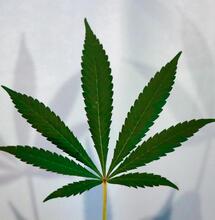Illinois Legal Market Broke Records in 2022

Legal recreational sales of cannabis in the Prairie State surpassed a figure of $1.5 billion in 2022, according to state data. December was the strongest month on record. Illinois adult use market has more than doubled since 2020.
Illinois yearly adult-use marijuana sales hit a total of $1,552,324,820, which is a 12 percent climb from 2021 or a whopping 131 percent jump from 2020 when the sales figure stood at $669,084,410.
Traditionally, December was the highest-spending month. In light of the holidays, expenditures on marijuana hit almost $144,000, a climb from $138,000 in December 2021.
Illinois governor, J.B. Pritzker, stepped forward with a statement. "When I signed the Cannabis Regulation and Tax Act into law in 2019, we set out on an ambitious goal: to create the most equitable and economically prosperous cannabis industry in the nation. Our data from 2022 shows that we are well on our way toward making that idea a reality," he said.
"This marks the second straight year that Illinois' adult use cannabis industry has seen record-setting growth, and we are excited for what the future holds for the most equitable cannabis industry in the country," said Mario Treto, Jr., Secretary of the Illinois Department of Financial and Professional Regulation. "We are optimistic the industry will only continue to flourish in 2023, as we welcome more dispensaries to Illinois."
Illinois crossed the $1 billion mark in August, two months earlier than it took for the same accomplishment in 2021.
While the billion figure is a huge success for the Illinois adult use state market, the state administration has been criticized for lack of diversity. Only three of the state's 113 dispensary shops currently in operation belong to social equity participants. The three social equity candidates in question received their permits to work only last year, in 2022. Improving market diversity is one of the goals that the Illinois administration vowed to work on in 2023.
Nevertheless, officials are already diverting hundreds of thousands of tax dollars from marijuana sales to support community reinvestments in places "hardest hit by the failed war on drugs." Finances have also been made available for efforts to reduce violence through street intervention programs.
Since enforcing legalization, Illinois has also expunged and pardoned over 500,000 cases with low-level marijuana convictions. In addition, Gov. Pritzker signed a bill last year that will prevent courts from denying petitions to expunge or seal records based on a positive marijuana drug test. Those residents with a marijuana conviction on their record can also get legal support to have their records expunged through a state-funded initiative.













